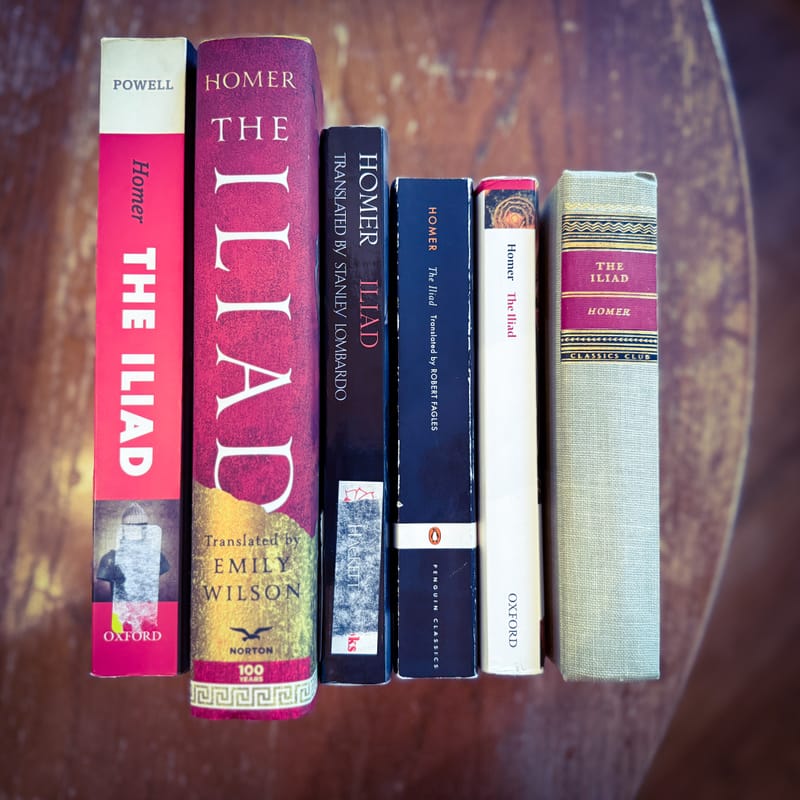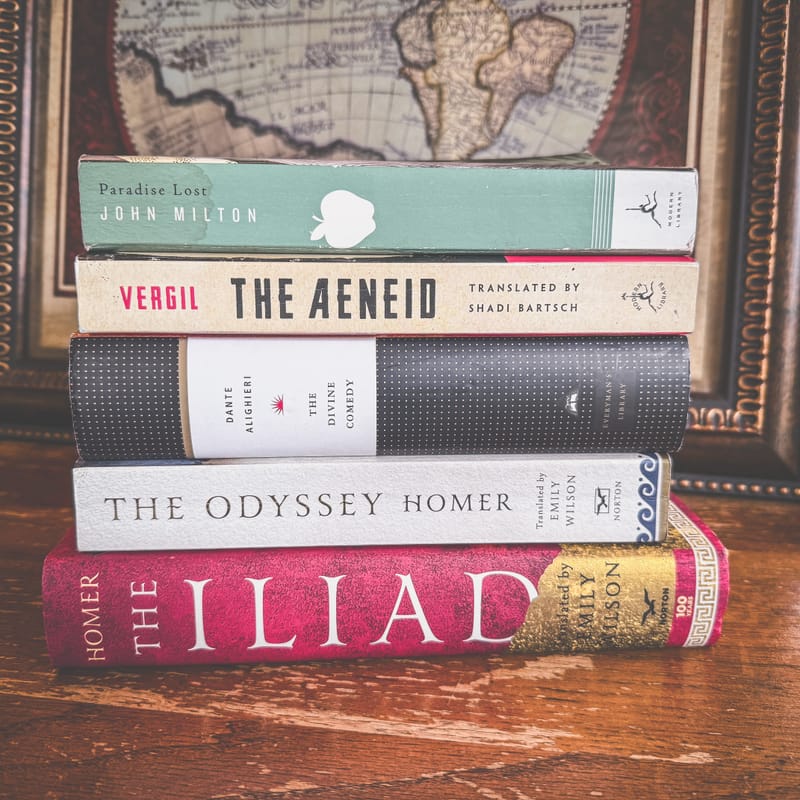Last year, I embarked on what I called my Epic, Epic Poetry Project: reading five of the “most honored but least read books in the great tradition of the Western World” (Mortimer Adler, How to Read a Book).
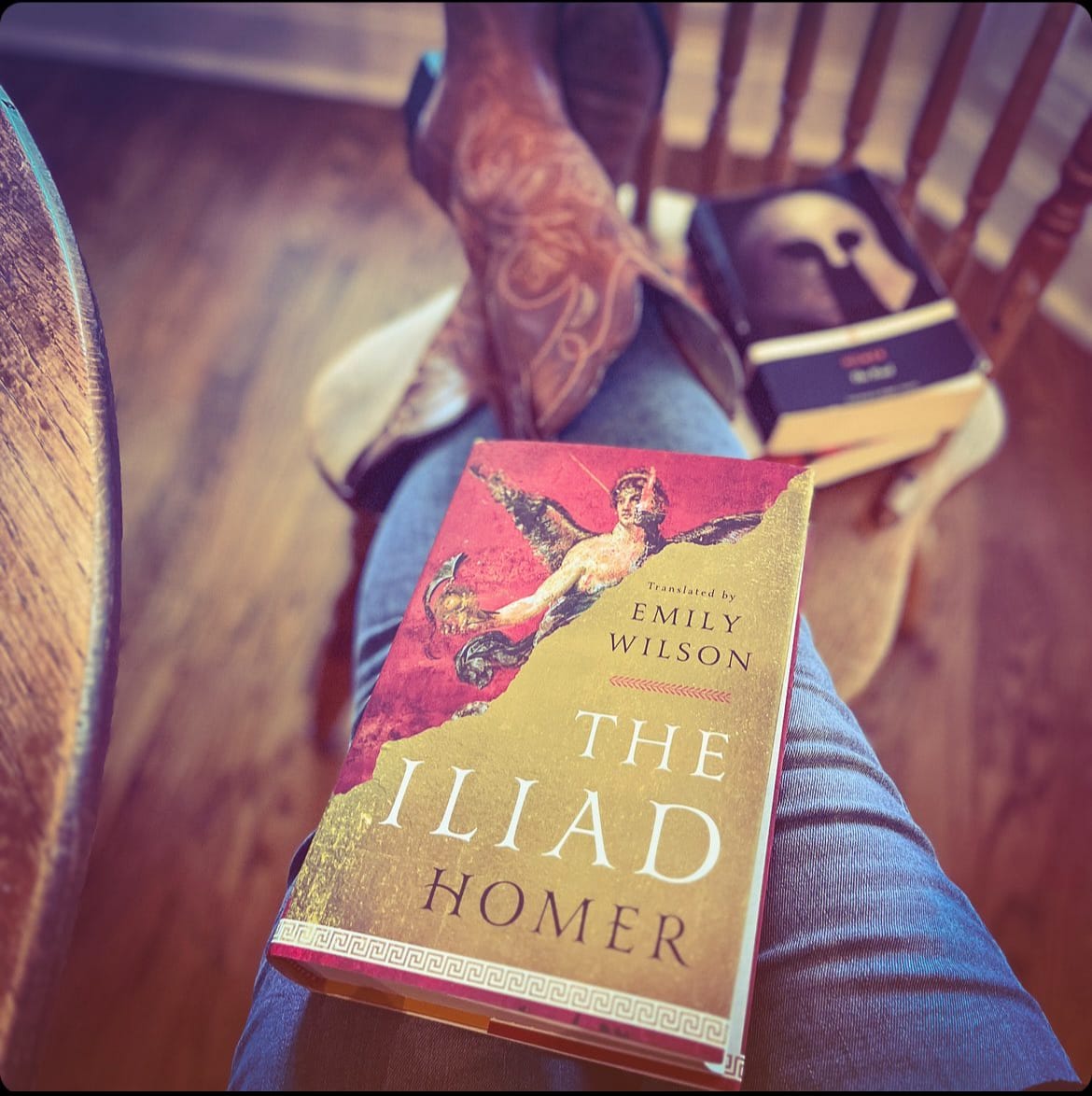
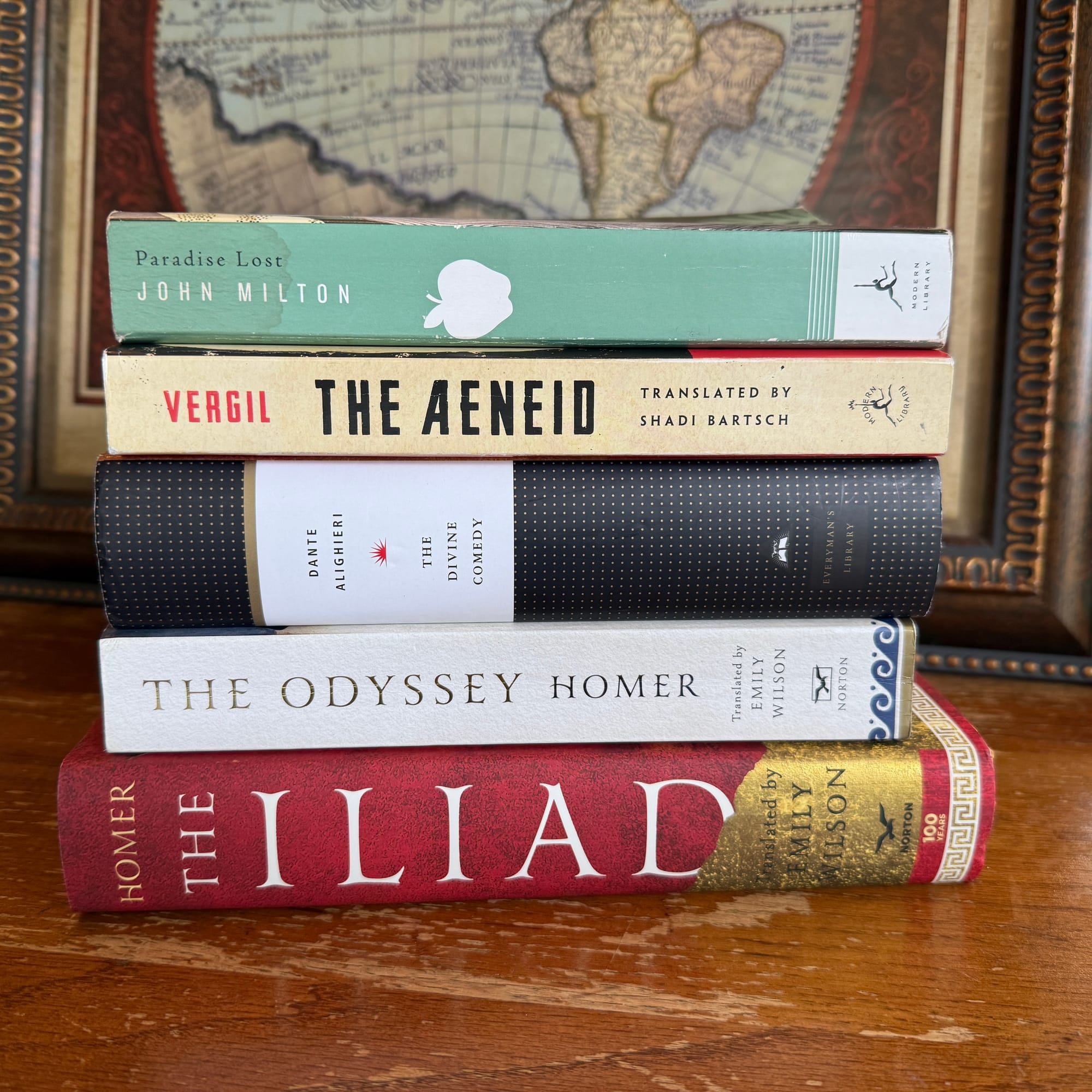
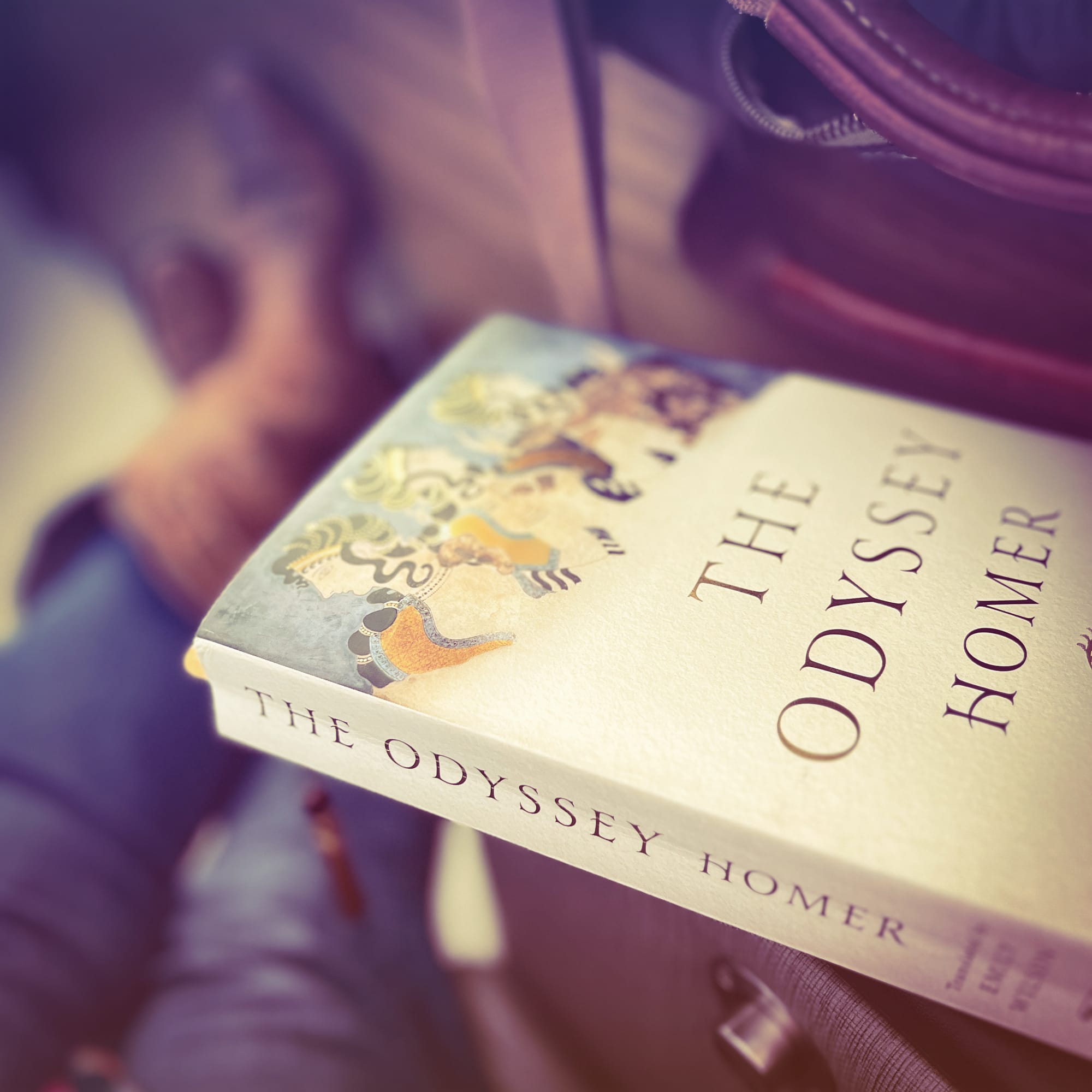
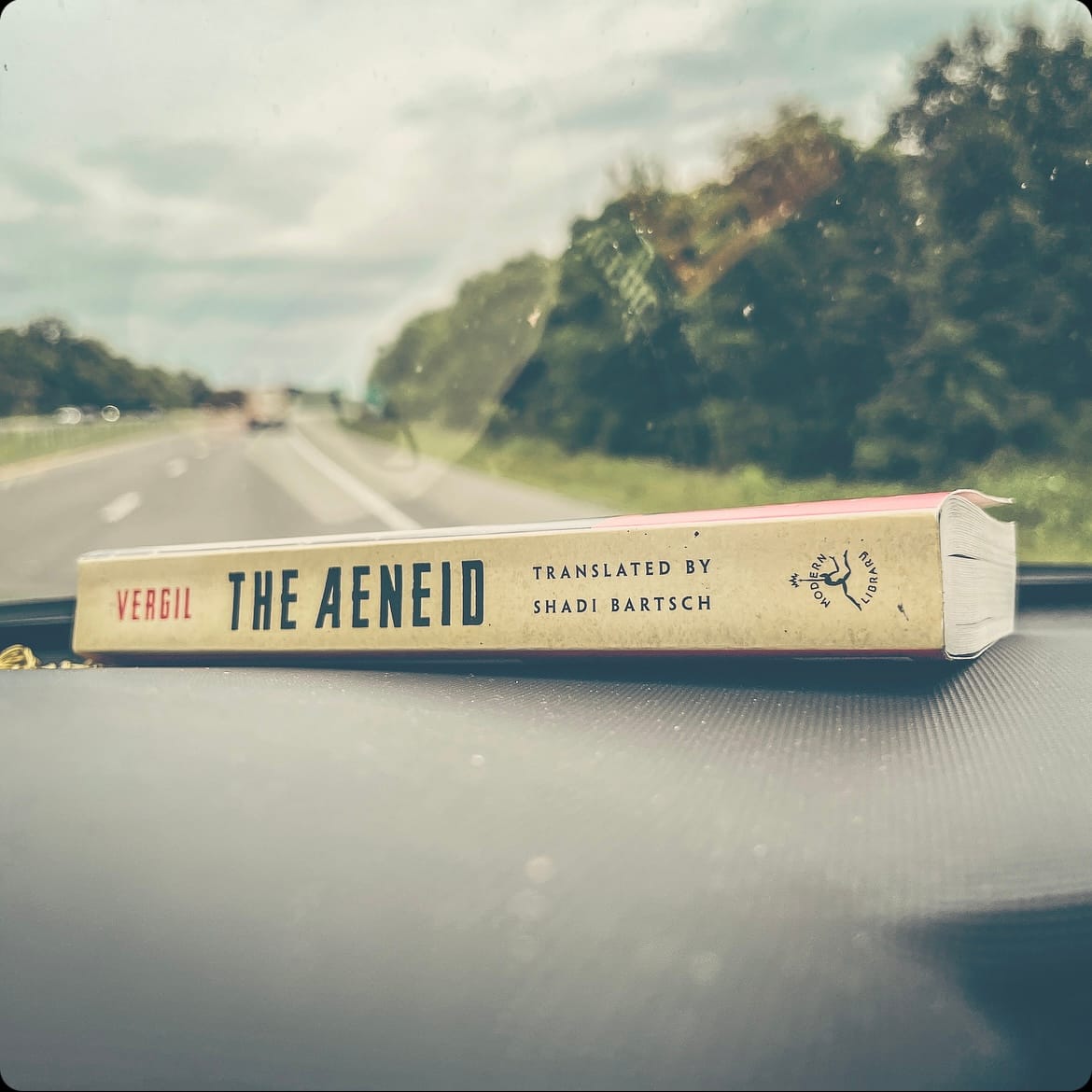
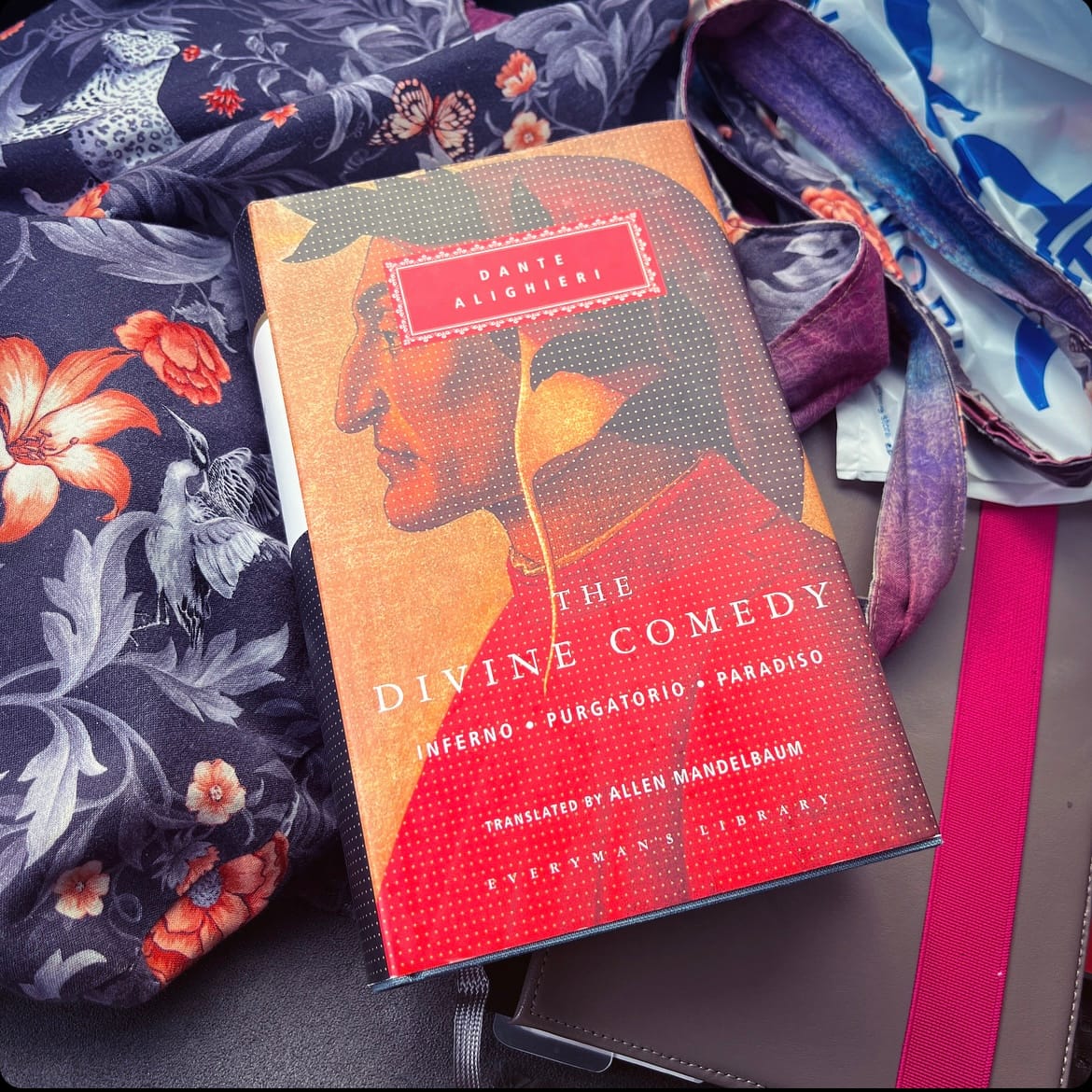
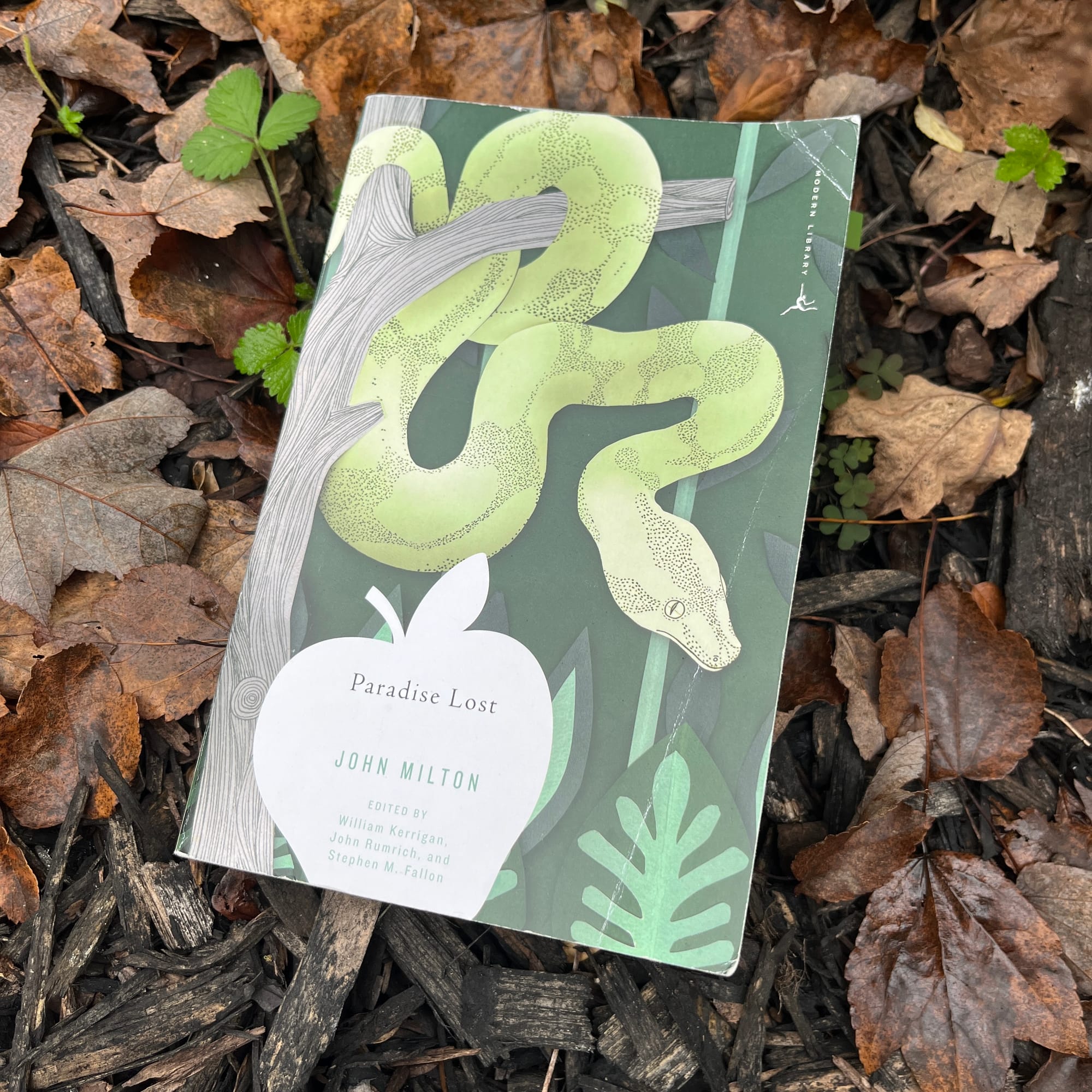
I decided to read them. In order. Back to back.
- The Iliad by Homer
- The Odyssey by Homer
- The Aeneid by Virgil
- The Divine Comedy by Dante
- Paradise Lost by Milton
This post is the first in a series where I’ll share what I learned from this journey: unexpected lessons, personal growth as a reader, favorite discoveries, and what I might do differently if I started again. In later posts, I’ll take a deeper look into each of these works, the translations I chose, and offer resources and recommendations for anyone who wants to embark on their own epic epic poetry project.
Unexpected Lessons
1. Epic Projects Take Time
I originally did not have a 'timline' per se. (How can you read with abandon if you are under a deadline?) I decided to just read until I was done.
I did, however, imagine how long it would take me. I thought I’d finish this in five to eight weeks. And maybe, if I really took my time, it would stretch to five months.
Spoiler: it took me eleven months.
I thought I’d read one epic per week, and give The Divine Comedy three weeks (one for each part). But that was wildly optimistic. Epic poetry slows you down in the best way—it invites you to linger, reread, and reflect.
And honestly? I’m so glad it took as long as it did.
2. Epic Poetry Is Full of Adventure
These books aren’t just “important works of literature.” They’re incredibly engaging stories: I felt for Chryses and his desperate plea to have his daughter returned, which set off the rage of Achilles; was horrified when Odysseus and his men were trapped in the cave with the Cyclops, Polyphemus; captivated as Aeneas journeyed into the underworld with the priestess; felt a deep sadness when Virgil left Dante in Beatrice’s care after guiding him for so long (I actually cried); and was surprised to see Lucifer cast as a kind of anti-hero in Paradise Lost.
I thought The Iliad would be my least favorite. But it ended up being the one I loved most. The characters, the stakes, the beauty of the language all surprised me on every page.
Each poem held something unexpectedly moving or thrilling, and they all drew me in more than I ever imagined.
3. The Struggle is Real (but so are the rewards)
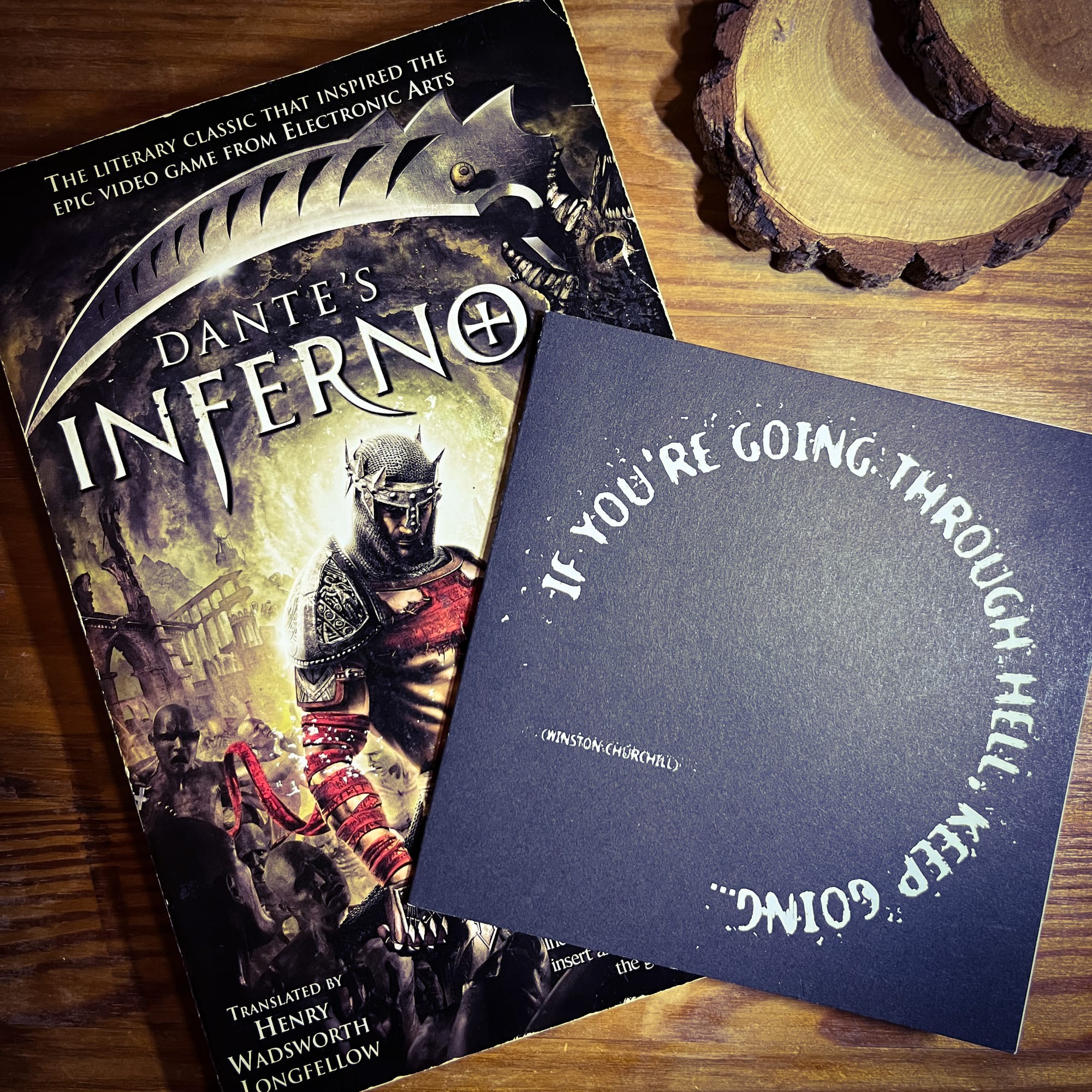
I struggled a little with The Aeneid because it had a completely different feel than Homer. In Homer, the gods were immediate, visceral, fully present. In The Aeneid, they felt more distant—almost like they were being carried around like dolls. It took me a while to settle into the rhythm of that epic. (It could also have been the translation I chose.)
I struggled with Dante more deeply. There were so many historical and literary references I often had to look up, which disrupted the flow of reading. Many times I wondered if things were going over my head or if I was missing something great because of the translation.
With Milton, I clashed with his Protestant Christian theology, but I couldn’t deny how poetic and powerful the language was.
But I kept going. I didn’t stop. And in the end, it was worth it.
4. Humans Haven’t Changed That Much
One of the most surprising things I learned is how little we’ve changed over thousands of years. We still get angry. We still fight wars. We still love, grieve, and ponder our afterlife. We still tell stories to make sense of the world. We still crave adventure and honor those who came before us.
Reading these epics made me feel connected not just to the authors, but to the readers and listeners across centuries who were moved by the same emotions, questions, and struggles.
5. Reading Them Back-to-Back Was the Best Decision
I once read the Bible cover to cover. (For those of you who have done this, you know what I’m talking about.) It was a unique experience: an overarching, sweeping epic of the whole journey from beginning to end.
Reading these epic poems back to back gave me a similar feeling—an epic journey across time and space, with a sense of continuity from one to the next across the centuries.
Each work builds on the one before it, and reading them as a sequence created a layered, unfolding experience that was far more powerful than reading them in isolation.
After The Iliad, I was genuinely sad to say goodbye to the characters. But in The Odyssey, we meet a few of them again as Telemachus sets out to find news of his father. Then in The Aeneid, we pick up after the fall of Troy and follow the Trojans as they migrate and sow the seeds of what will become the Roman Empire.
The Divine Comedy takes us even deeper. Virgil himself becomes our guide, and we encounter familiar figures from the Homeric world in the afterlife. Echoes of the underworld and dark forests bring earlier poems back to life. Finally, we arrive at Paradise Lost, which offers a vision of the beginning of the world unlike anything before it.
Read in this order, these five works form a kind of grand conversation across time. They belong together. Reading them back to back also keeps each story fresh in your mind, and the feel of each poet’s voice placed side by side creates an immediate sense of contrast and connection.
The Epic, Epic Poetry Project Changed Me as a Reader
I grew as a reader during this project, and I did not expect that. Not only did I expand my vocabulary and ideas, deepening my love of language and writing, but I didn’t give up in the 11 months it took me to complete this project (even though I struggled at times). That alone changed something in me.
It wasn’t a shift I noticed right away. But when I tried to go back to the kinds of books I normally enjoy—thrillers, horror novels, or even more literary contemporary reads—they started to feel a bit... flat. Sometimes even boring. I often could see the ending coming a mile away.
This project changed me, and I couldn’t quite put my finger on it. At first, I wondered if I had become a book snob. But really, I think it just raised the bar. Now I want depth. I want complexity. I want language that sings.
It also gave me confidence. I trust myself more as a reader now. I know I can face difficult texts and keep going, even when I feel lost or unsure. And that makes reading feel even more joyful. I didn’t know that was possible, but it is.
Favorite Discoveries
I’m the kind of person who dislikes war movies and war novels, so I assumed I wouldn’t enjoy The Iliad at all. But as I’ve already said, it ended up being my favorite. That alone was a huge surprise.
One moment that really stood out: while reading Paradise Lost, I came across the phrase “his dark materials.” It immediately clicked that that is where Philip Pullman got the title for his trilogy. (Turns out he included it in the beginning of The Golden Compass.) I love those kinds of literary echoes, when one great work speaks directly to another across time.
Just like the Bible, which people love to retell in many different ways and which continues to shape the worlds of art and music, these epic poems do the same. I surprises me how much their influence still echoes into our world - even today, in the age of the internet, video, and AI. (They literally just came out with a new show about Odysseus and retelling that story.)
I also loved realizing how the poets themselves speak to each other across the centuries—Virgil guiding Dante in The Divine Comedy, for example, and Virgil himself expanding on Homer. Today, our culture tends to retell stories, but these poets built on one another, weaving connections and creating something new.
I also discovered how readable these poems were. With the right translation, they weren’t intimidating. They were compelling. And even today, these stories are still being retold in new books, films, and television shows. They continue to live and influence culture, even among those who’ve never read them.
What I’d Do Differently

When I got to The Divine Comedy, a friend joined me. We were talking one day, and I was telling her about my project. She told me she really wanted to read The Divine Comedy—that not having read Dante left a “huge hole” in her reading life. So we read it together over the summer.
And honestly, it was the best. Having someone to share thoughts, compare impressions, and simply encourage each other through the struggle areas made the experience even more meaningful.
I only read one of my five epic poems with a friend. So if I had it to do over again, that is what I would do differently: I would do the entire project with a friend.

This is just the beginning. In the posts to come, I’ll be sharing more about each of the five epic poems—what it was like to read them, the translations I chose, what surprised me, and why I think they’re still worth reading today.

